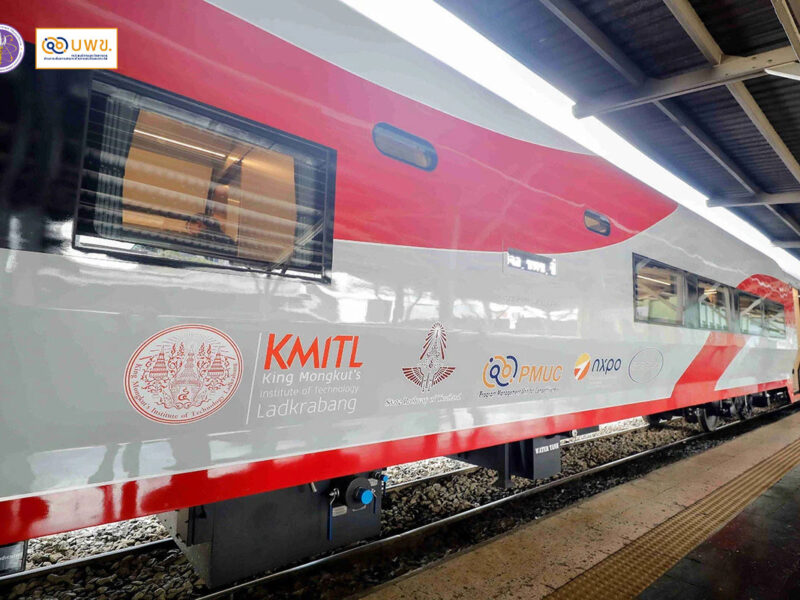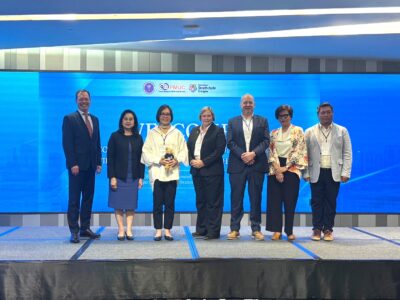
Program Management Unit for Competitiveness (PMUC), in collaboration with King Mongkut’s Institute of Technology Ladkrabang (KMITL), the State Railway of Thailand (SRT), and the Joint Venture Sinogen-Pin Petch Co.,Ltd., conducted testing of the “Sut Khob Fah” train (Thai-made train) from Hua Lamphong Station to Phra Jom Klao Station in preparation for the handover to SRT for general public use.
The “Sut Khob Fah” train is a prototype passenger train, developed through research and development by a research team from KMITL (King Mongkut’s Institute of Technology Ladkrabang). The project, titled “Development of Prototype Passenger Train (Thai-made Train),” was funded by the Program Management Unit for Competitiveness (PMUC) under the Future Mobility Program, in collaboration with Joint Venture Sinogen-Pin Petch Co.,Ltd. The project is led by Associate Professor Somyot Kiatwanidvilai, Ph.D., Dean of the Faculty of Engineering at KMITL, with the State Railway of Thailand (SRT) being the agency to implement the research outcomes to enhance railway services for the public. The collective goal is to promote the rail transport manufacturing industry under the concept of “self-reliance.”
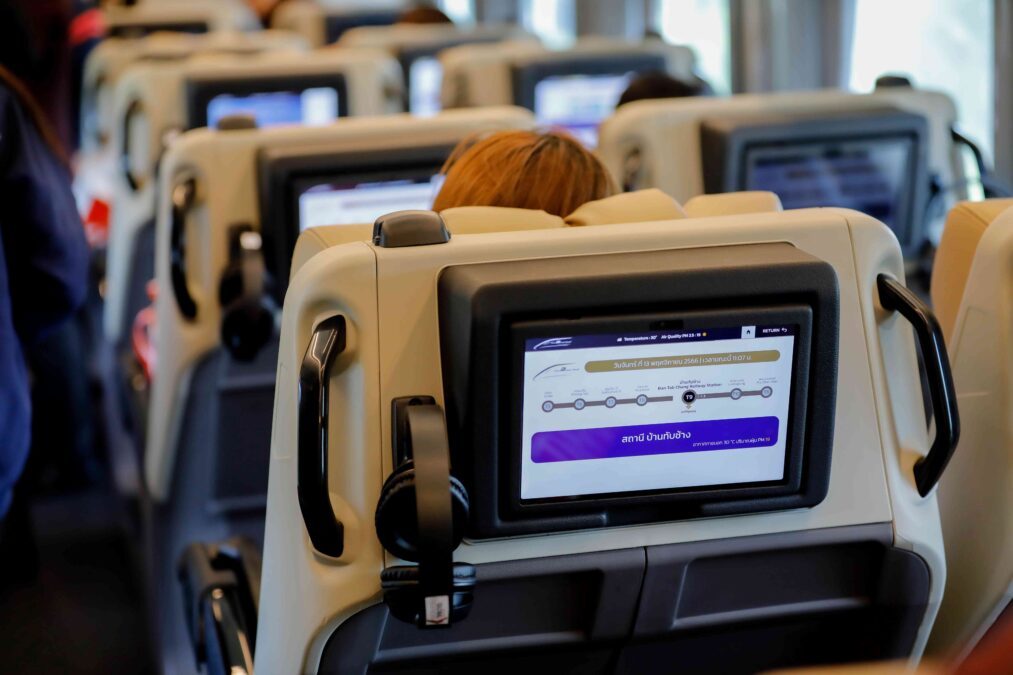
This prototype passenger train has been designed and manufactured by Thai people, sourcing over 44% of the materials used in production from local suppliers, ultimately resulting in assembly of the most luxurious and modern train bogies in the region, aptly named the Luxury Class and Super-Luxury. Inspired by first-class airplane seats, these train cars are designed to meet the demand for passenger train cars for the next 20 years, with an expected need for no less than 2,425 cars due to the increase in railway infrastructure investment by the state over the years. The average cost per carriage is 50 million baht, totaling around 100 billion baht for the passenger train carriage manufacturing market. The plan includes medium-distance train services on dual-track routes of 200-500 kilometers and tourist trains along SRT routes, competing with low-cost airlines and personal vehicles. The research team produced train carriages at a cost of 32 million baht each, which is significantly more cost-effective than importing from abroad, potentially reducing the country’s import costs by over 30%, representing a substantial economic value. Additionally, the knowledge and technology gained from this project will be transferred to local entrepreneurs and students, fostering long-term strength in Thailand’s rail transport industry.
(More details about the “Sut Khob Fah” train’s features can be found at https://pmuc.or.th/beyond-horizon/)
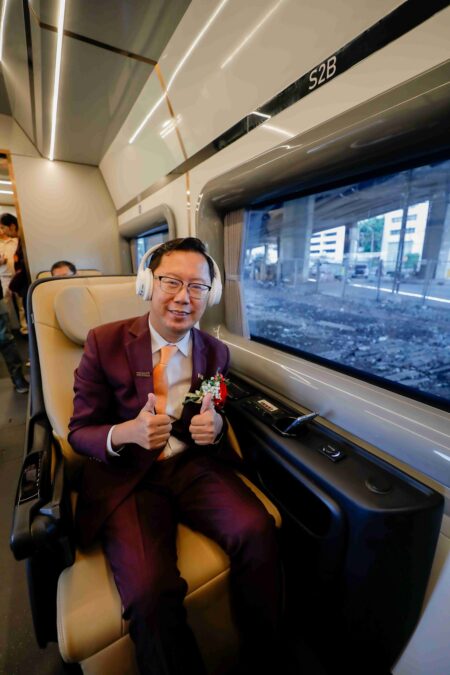
Associate Professor Somyot Kiatwanidvilai, Ph.D., said “The main goal of this project is to develop a prototype passenger train relying primarily on domestic industry. This aligns with the Thai First policy and the policy of promoting the use of domestically produced products, especially in the development of the country’s rail infrastructure. We have developed a prototype passenger train, “Sut Khob Fah”,’ which features a three-dimensional space frame structure combined with shell elements and a bolster system that connects to the train chassis. The design process adheres to international standards such as EN, UIC, and AAR, and follows the requirements of the State Railway of Thailand. The research team has continuously conducted performance tests on the train, including the Water Tightness Test and a 700 km Running Test, as well as emergency braking tests at a speed of 94.1 km/h and running tests at a maximum speed of 120 km/h.”

Associate Professor Weerasak Udomkijdecha, Ph.D., Chairman of the Future Mobility Subcommittee, Program Management Unit for Competitiveness (PMUC), stated, “PMUC expects to see the research and development we support being utilized commercially, creating economic impact for the country. We have been driving this initiative for a long time with multi-year research and development funding and will continue to support it in the coming years. We understand that many research and development projects cannot be completed within a single year. We believe this project has the potential to create a broad impact in terms of developing the country’s rail transport industry, technology advancement, and knowledge transfer to enhance the country’s economic competitiveness. The returns from R&D investment include not only economic benefits but also high social returns and, importantly, knowledge creation within our country, reducing dependence on foreign nations. At the start of this project, we used about 40% local materials, and we expect to increase this in the future. Additionally, this project has demonstrated that domestic production can significantly reduce costs compared to imports. These factors clearly prove that we are investing in worthwhile endeavors, and we hope to see many more projects like this. PMUC is fully prepared to support the research and development of technology, innovation, and services by Thais, which will strengthen the country’s economy.”
Associate Professor Dr. Somyos Kiattiwanichwilai said, “The main goal of this project is to develop a prototype passenger train relying primarily on domestic industry. This aligns with the Thai First policy and the policy of promoting the use of domestically produced products, especially in the development of the country’s rail infrastructure. We have developed a prototype passenger train, ‘Beyond Horizon,’ which features a three-dimensional space frame structure combined with shell elements and a bolster system that connects to the train chassis. The design process adheres to international standards such as EN, UIC, and AAR, and follows the requirements of the State Railway of Thailand. The research team has continuously conducted performance tests on the train, including the Water Tightness Test and a 700 km Running Test, as well as emergency braking tests at a speed of 94.1 km/h and running tests at a maximum speed of 120 km/h.”
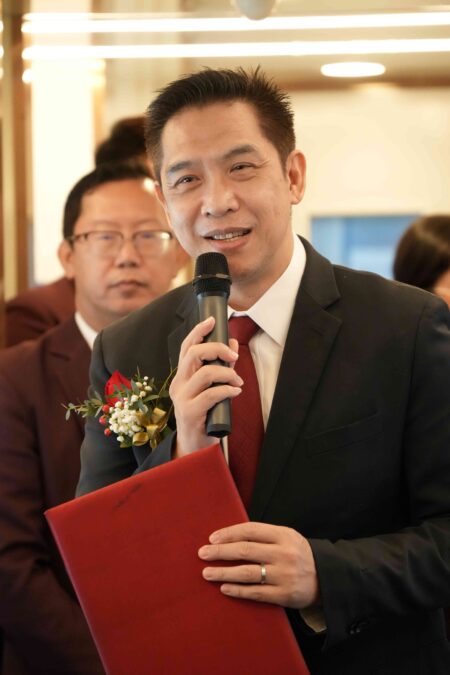
Associate Professor Dr. Weerasak Udomkijdecha, Chairman of the Subcommittee on Future Transport Systems Planning, National Science and Technology Development Agency (NSTDA), stated, “NSTDA expects to see the research and development we support being utilized commercially, creating economic impact for the country. We have been driving this initiative for a long time with multi-year research and development funding and will continue to support it in the coming years. We understand that many research and development projects cannot be completed within a single year. We believe this project has the potential to create a broad impact in terms of developing the country’s rail transport industry, technology advancement, and knowledge transfer to enhance the country’s economic competitiveness. The returns from R&D investment include not only economic benefits but also high social returns and, importantly, knowledge creation within our country, reducing dependence on foreign nations. At the start of this project, we used about 40% local content, and we expect to increase this in the future. Additionally, this project has demonstrated that domestic production can significantly reduce costs compared to imports. These factors clearly prove that we are investing in worthwhile endeavors, and we hope to see many more projects like this. NSTDA is fully prepared to support the research and development of technology, innovation, and services by Thais, which will strengthen the country’s economy.”
Mr. Nirut Maneepan, the Director of the State Railway of Thailand, added, “This project is a source of pride for the Thai people, arising from the cooperation of various Thai organizations, including research institutes, the public sector, and the private sector. They have come together to create our own technology. We are able to produce passenger train carriages ourselves using materials within our country. The “Sut Khob Fah” train is modern, luxurious, with comprehensive safety systems, conveniences, and entertainment systems that exceed many people’s expectations. It can change the Thai public’s attitude towards Thai trains for the better. We have always believed that the skills and intelligence of Thai people are second to none in the world, and today, our research team has proven that we can do it. This achievement will become crucial knowledge that will enable us to sustainably rely on ourselves. The next step is to test the market and gauge public feedback to develop service plans and manage costs going forward.”
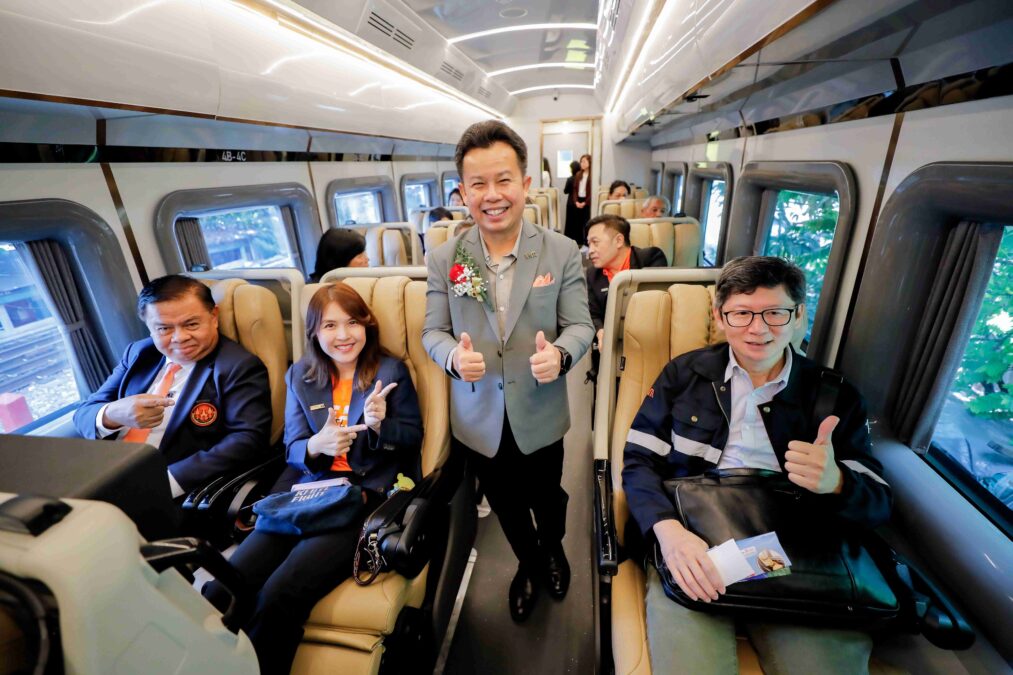
The prototype passenger train development project (Thai-made trains) serves as a proven example of the value of investing in R&D for the country’s infrastructure. This project has been supported and promoted by the Program Management Unit for Competitiveness (PMUC), and has evolved from laboratory development to testing, certification, and commercial utilization, all benefiting from funding by the national Science, Research, and Innovation Fund. Collaboration across various sectors has been key to its success, including the public sector represented by PMUC and the State Railway of Thailand (SRT), the private sector by the Joint Venture Sinogen-Pin Petch Co.,Ltd., and research institutes such as the research team from King Mongkut’s Institute of Technology Ladkrabang (KMITL) in collaboration with the National Science and Technology Development Agency (NSTDA), Naresuan University (NU), and King Mongkut’s University of Technology North Bangkok (KMUTNB). This collaborative effort has led to the project’s success and the creation of domestic knowledge and technology. Seven intellectual property assets have been registered from this project, and the knowledge and technology have been transferred to more than 10 local companies capable of production and assembly, which is crucial in driving the country’s economy and locomotive industry to become robust and competitive in the global market.

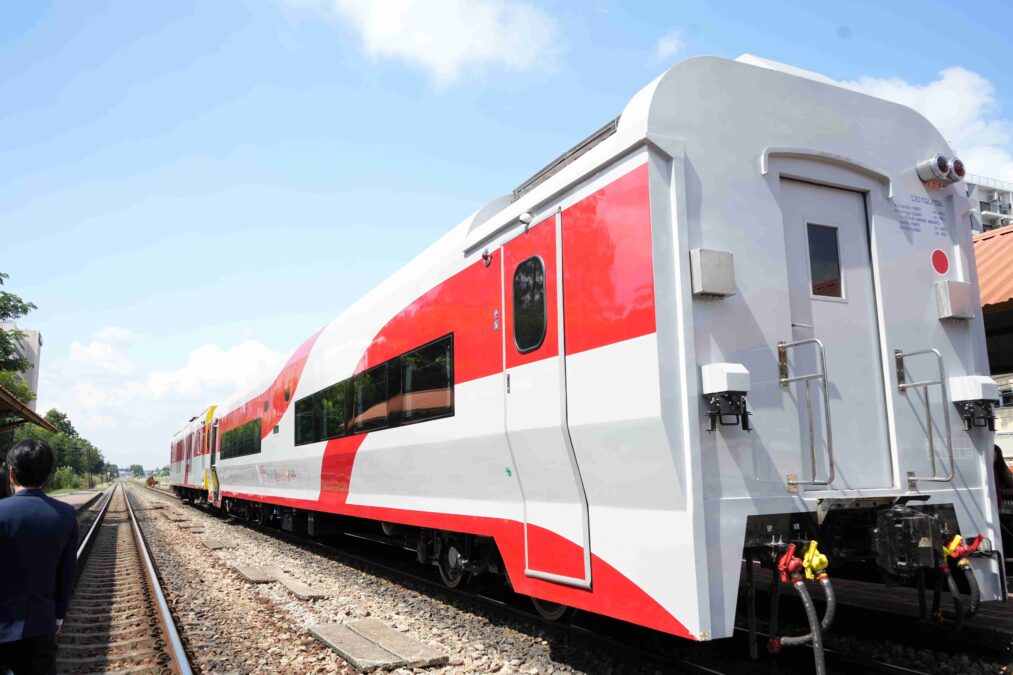
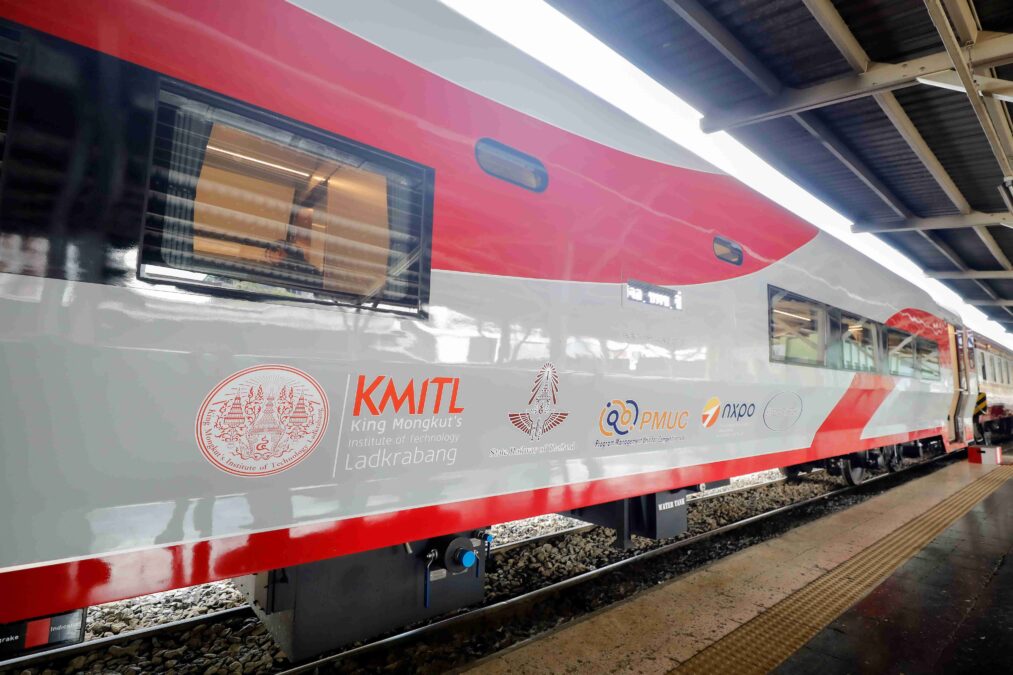
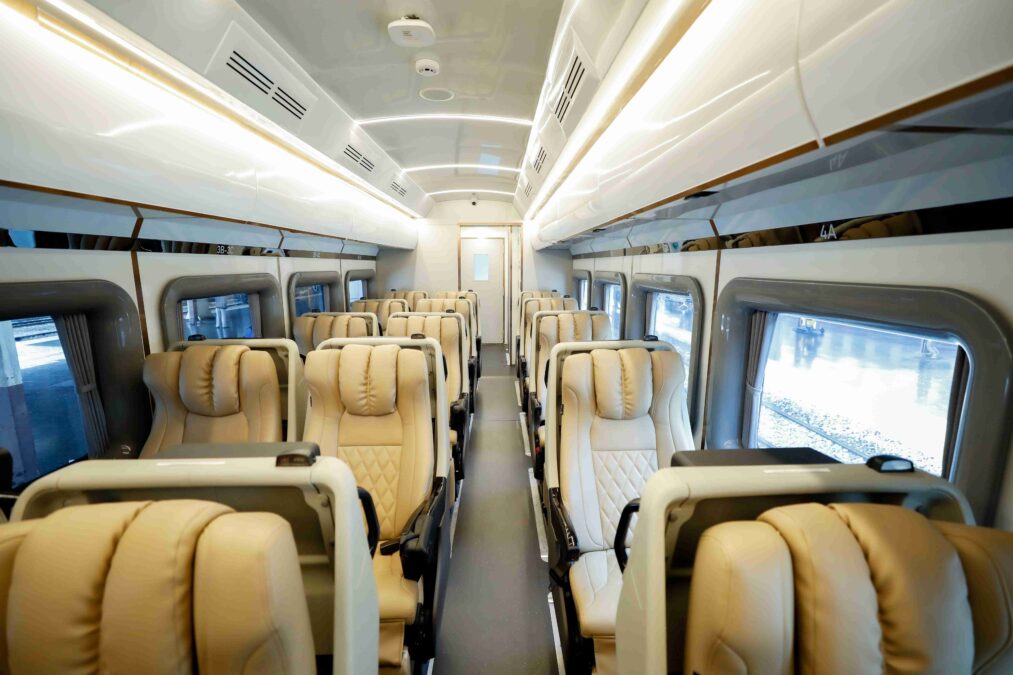
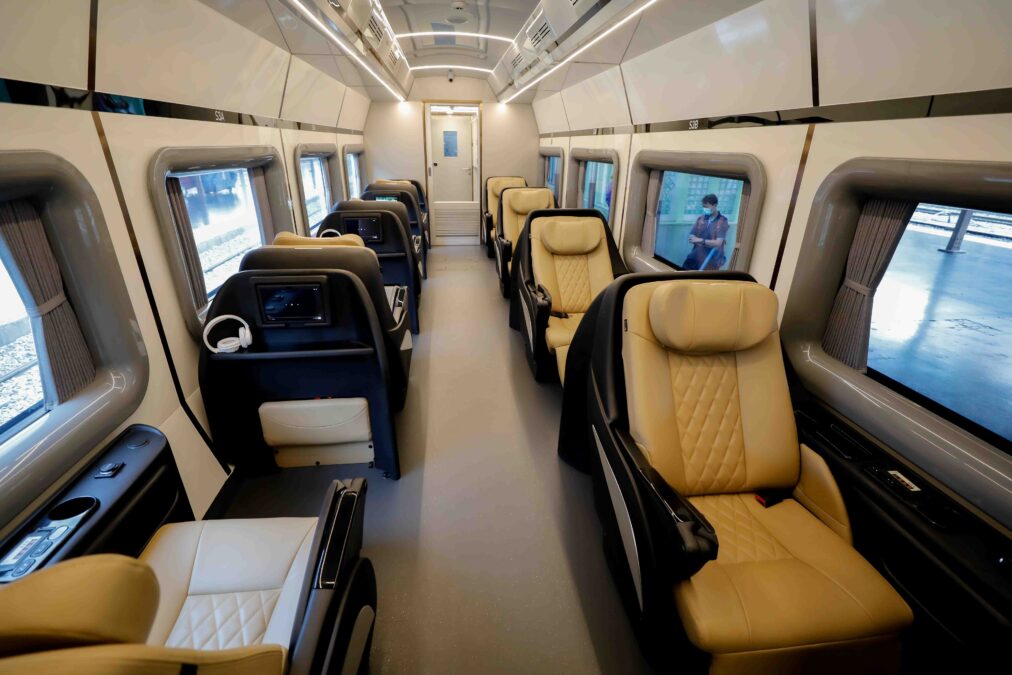

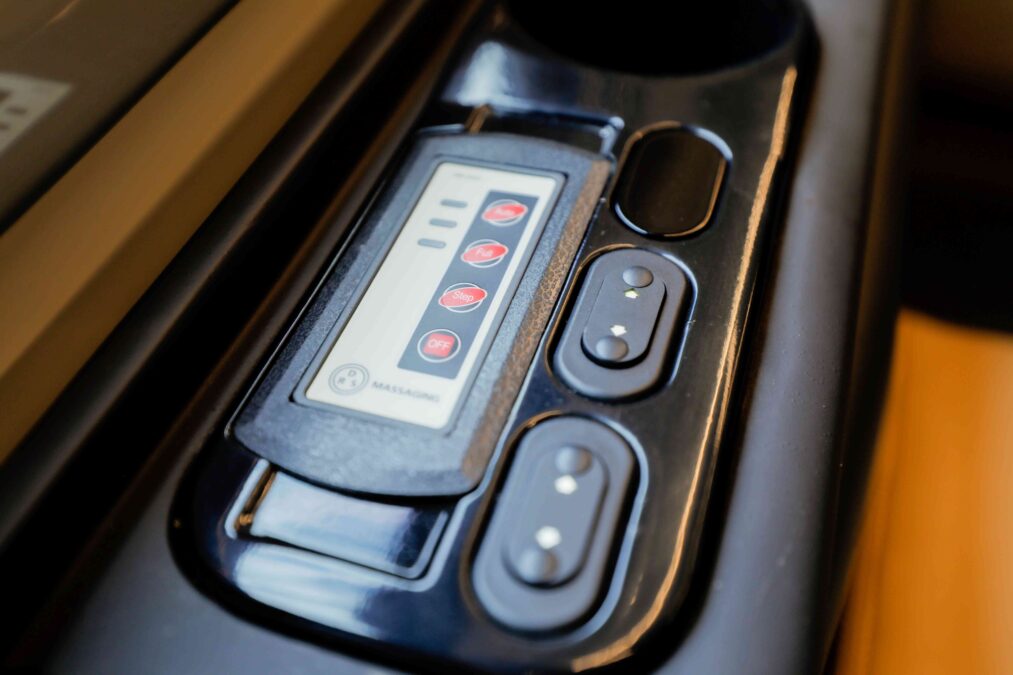
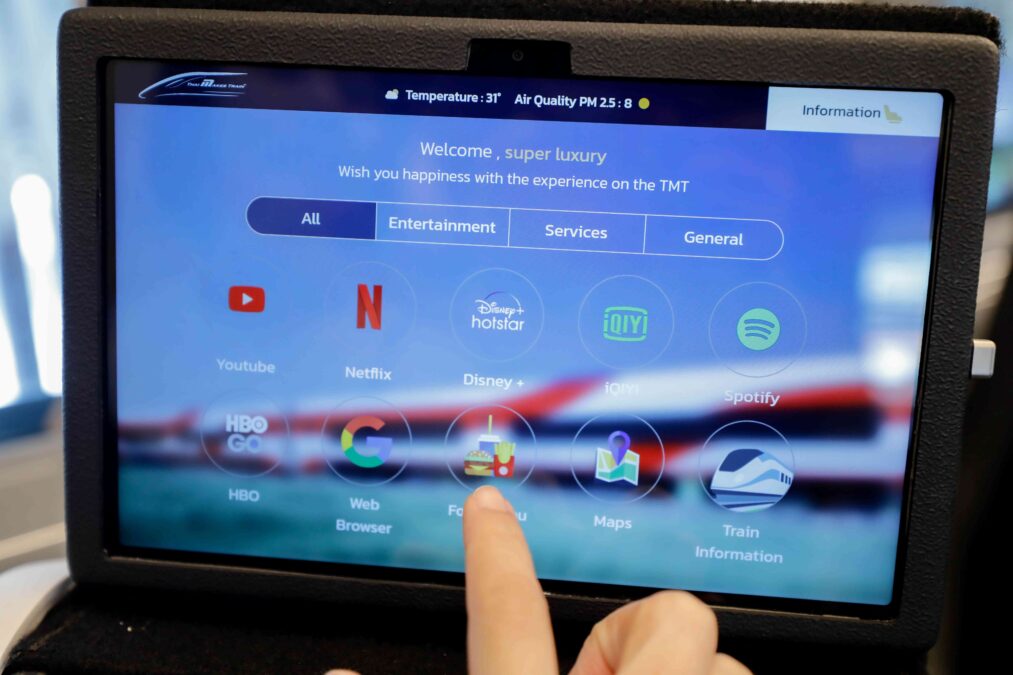
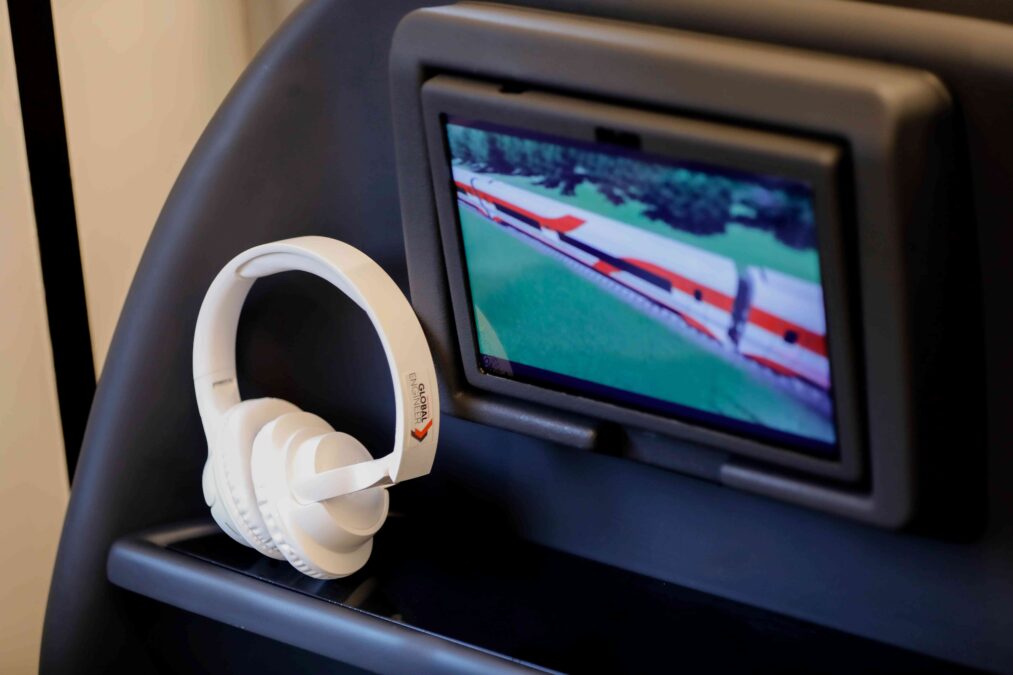
Cr: Images from PMUC and KMITL.

